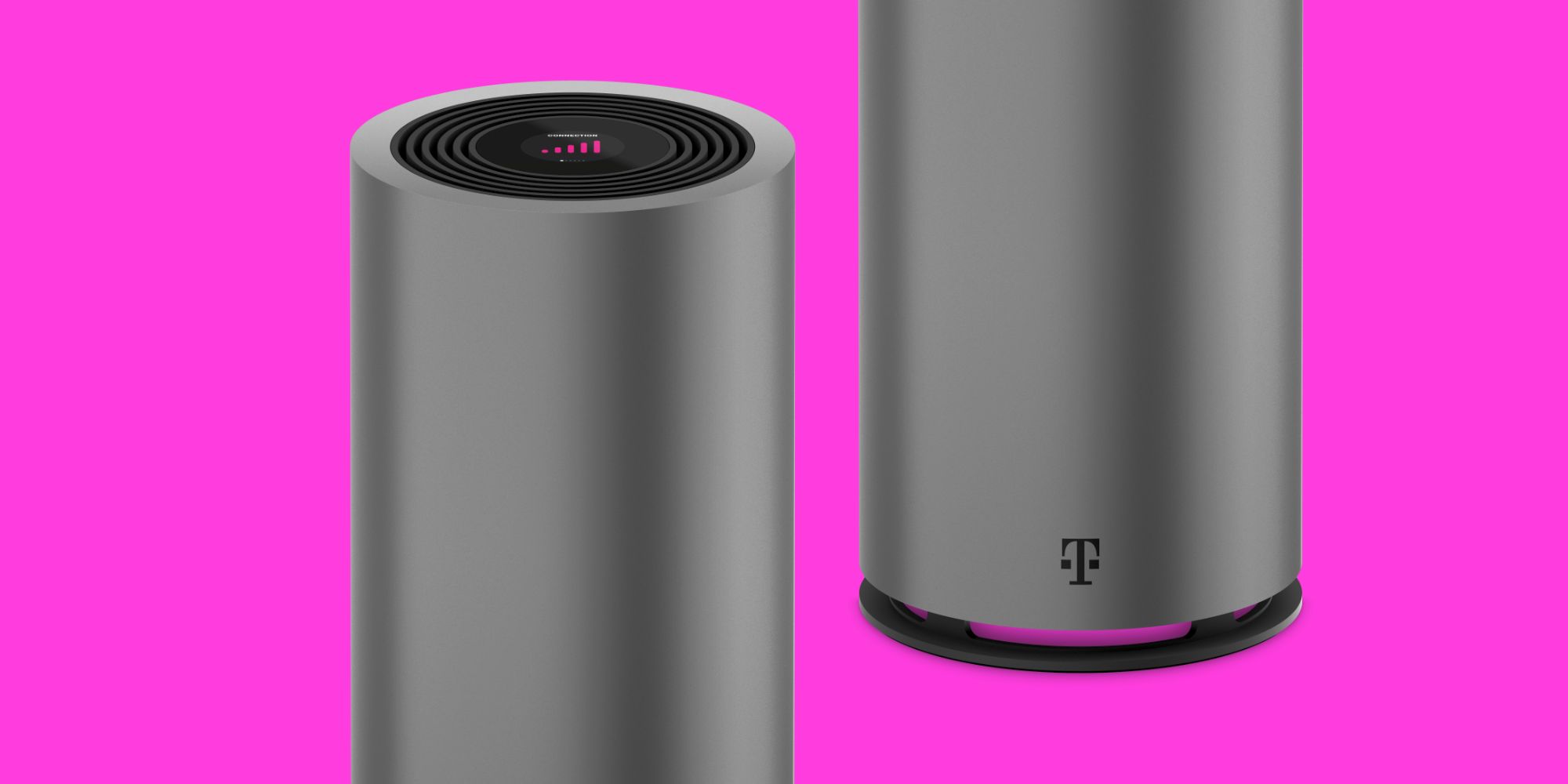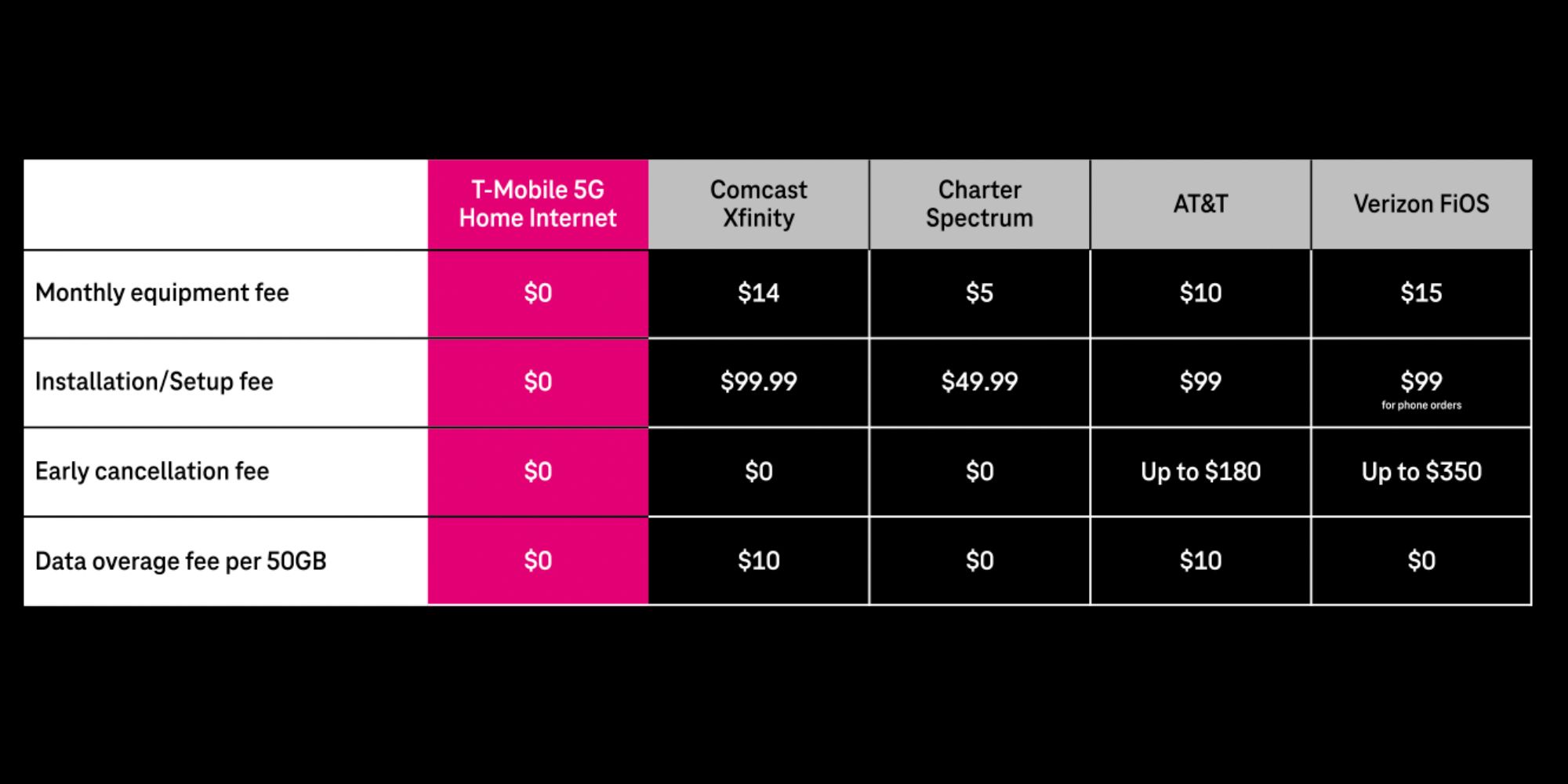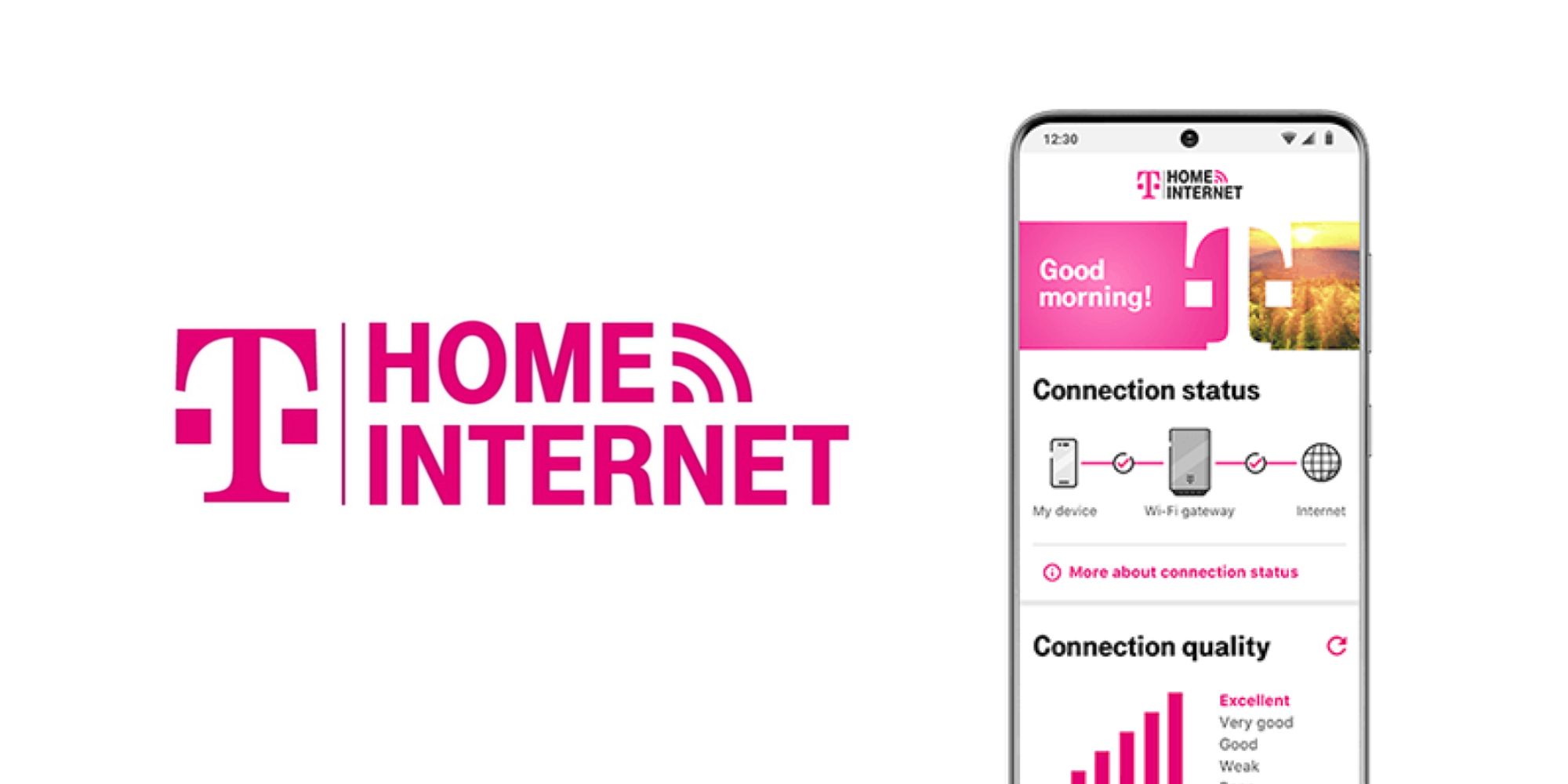T-Mobile Home Internet pitches itself as 'high-speed home internet' without any BS, but is the service really as good as T-Mobile claims it to be? The internet infrastructure in the United States leaves a lot to be desired. In well-populated areas, services like Xfinity and Spectrum deliver fast and reliable cable internet — albeit without much competition. As you travel into more rural areas, cable internet disappears in favor of slower satellite and DSL alternatives. It's been a broken system for years, and it'll probably be that way for many more to come.
Thankfully, new internet companies have recently been trying to fix this. SpaceX's Starlink is one of the most popular, offering fast and low-latency internet via low-orbit satellites. Another brand that's making waves in this space is T-Mobile's Home Internet service, which relies on its existing 4G LTE and 5G network. The pitch behind T-Mobile Home Internet is a compelling one – pay $50 per month for speeds over 100Mbps with no data caps and no contracts. Sounds too good to be true, doesn't it? T-Mobile Home Internet is far from a perfect internet provider, but depending on where you live and what your other options are, it's certainly worth some consideration.
Let's start with the positives of T-Mobile Home Internet. Unlike some internet providers, T-Mobile doesn't enforce any strict data caps. Subscribers can play online games, stream movies, and download big files without ever worrying about using too much data. Compared to providers like Xfinity — which charges customers if they use more than 1.2TB of data in a single month — that's a huge win on T-Mobile's part. T-Mobile Home Internet also impresses with how fast the service is. T-Mobile says 'typical download speeds' vary between 33Mbps and 182Mbps, with the 'average download speed' often being more than 100Mbps. Upload speeds are decent, too, ranging between 6Mbps and 23Mbps. None of this sounds very impressive in a world where 1Gbps internet exists, but for people in rural areas who are typically limited to 10Mbps internet plans, it's a pretty massive upgrade. The cost perspective of T-Mobile Home Internet is great, too. The service is just $50/month with AutoPay enabled, there are no additional taxes/fees, and subscribers get a free 5G Gateway device (a combined router and modem) as part of their subscription. If someone tries T-Mobile Home Internet but realizes it's not for them, they can cancel at any time without breaking a contract.
T-Mobile Internet Is Good, But There's Room To Improve
As with any internet provider, however, T-Mobile Home Internet isn't all sunshine and rainbows. While there are a lot of things the service gets right, there are also some roadblocks potential subscribers need to consider. The biggest one? Location. Unlike traditional internet providers, which provide internet access via a hardwired connection, T-Mobile Home Internet comes from T-Mobile's wireless towers — just like its 4G and 5G phone service. Not only does this mean some areas get better signal/reception than others, but it can be as intricate as the room the T-Mobile router is placed in. You may get a poor signal in the office, but moving it out to the living room could improve things. This is why it's important to look at T-Mobile's coverage map before signing up. If the carrier has below-average coverage in an area, T-Mobile Home Internet won't be a good fit.
Also similar to wireless phone service, T-Mobile Home Internet is subject to data prioritization. If T-Mobile's network is particularly busy, Home Internet users may have their speeds throttled to accommodate all the ongoing traffic. It's something T-Mobile says isn't likely to happen, but it's still a possibility to consider. On top of all that, T-Mobile Home Internet still isn't available to everyone who wants it. Interested subscribers need to enter their address on T-Mobile's Home Internet website, following which they're told if they can get the service or not. The idea is to eventually expand Home Internet everywhere T-Mobile phone service is available, but the service just isn't there yet.
So, is T-Mobile Home Internet good? Yes and no. For someone who can get internet from Xfinity, Verizon Fios, or something similar, those more established services remain the best overall choice. They're capable of faster speeds, more reliable service, and typically have more plans to choose from. However, for the person who doesn't have those options, T-Mobile Home Internet could fit the bill quite nicely. Does it have the fastest speeds out there? No. Is it the most reliable ISP in existence? Also no. But compared to DSL or old-school satellite internet, T-Mobile's service is a pretty big upgrade.
Sign Up For A Test Drive
For those on the fence about signing up for T-Mobile's Home Internet, there is an option to sign up for a Test Drive. The Test Drive is available to new and existing T-Mobile users who are on a qualifying plan. These users can cancel their Home Internet service within 15 days of activation and get their money back via a one-time bill credit. There's no particular way to sign up for Test Drive – as long as you're on a qualifying plan and cancel Home Internet within 15 days you'll be eligible for a refund. Test Drive is a great way to try out T-Mobile's Home Internet plan in your location to see if the speeds are good enough to be a broadband replacement.
The 15-day activation window for Test Drive begins the moment the 5G Gateway device is purchased from a retail store or has been shipped (for online orders). If you cancel your T-Mobile Home Internet plan, you'll need to return the 5G Gateway device to get a refund. T-Mobile also offers a 30-day Test Drive, but this is only available to non-T-Mobile users.



